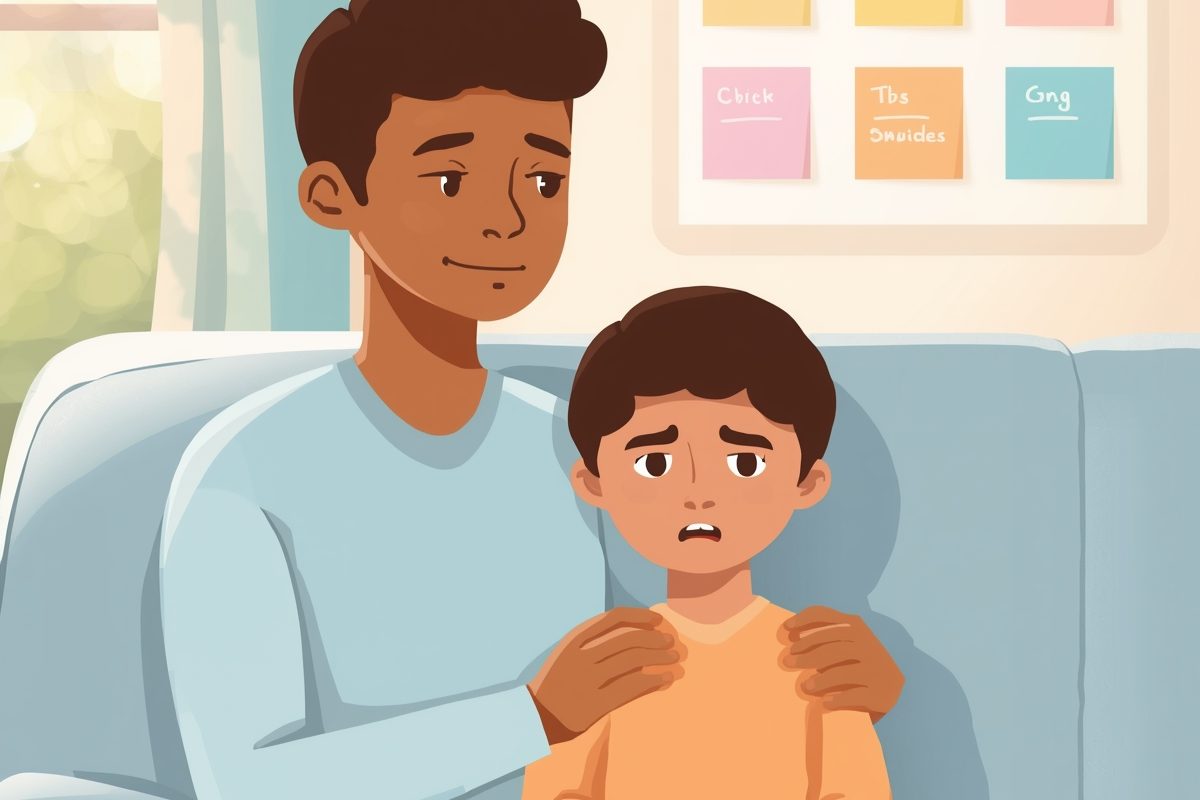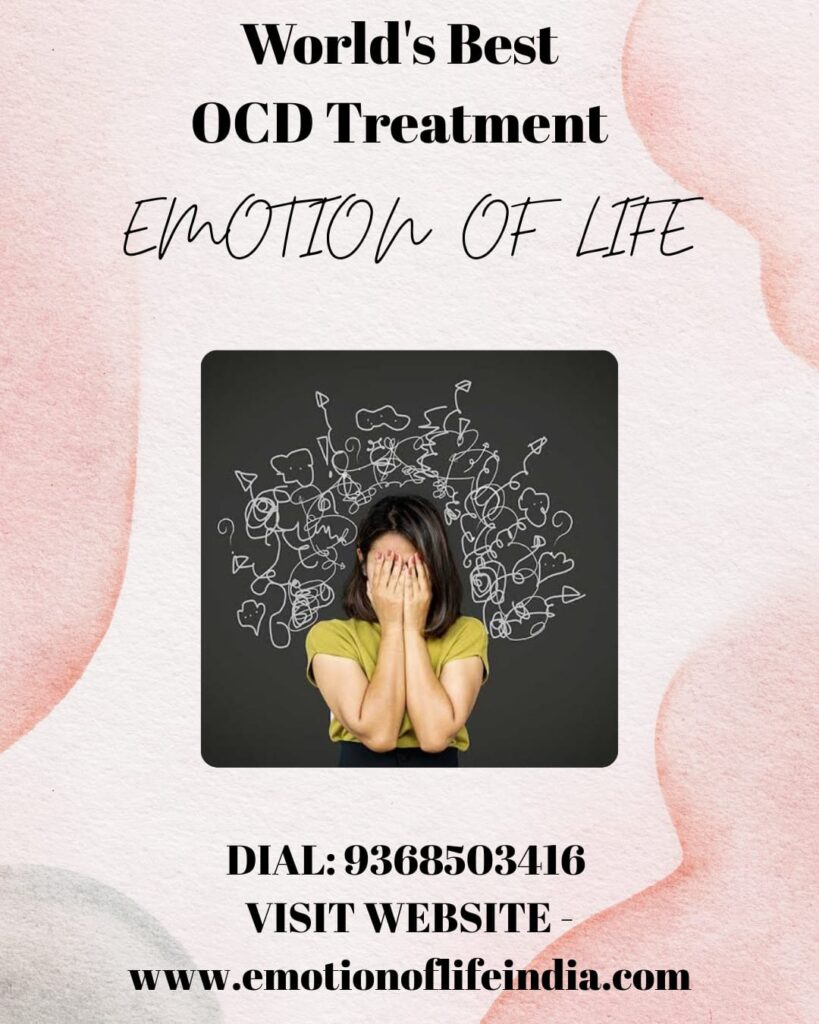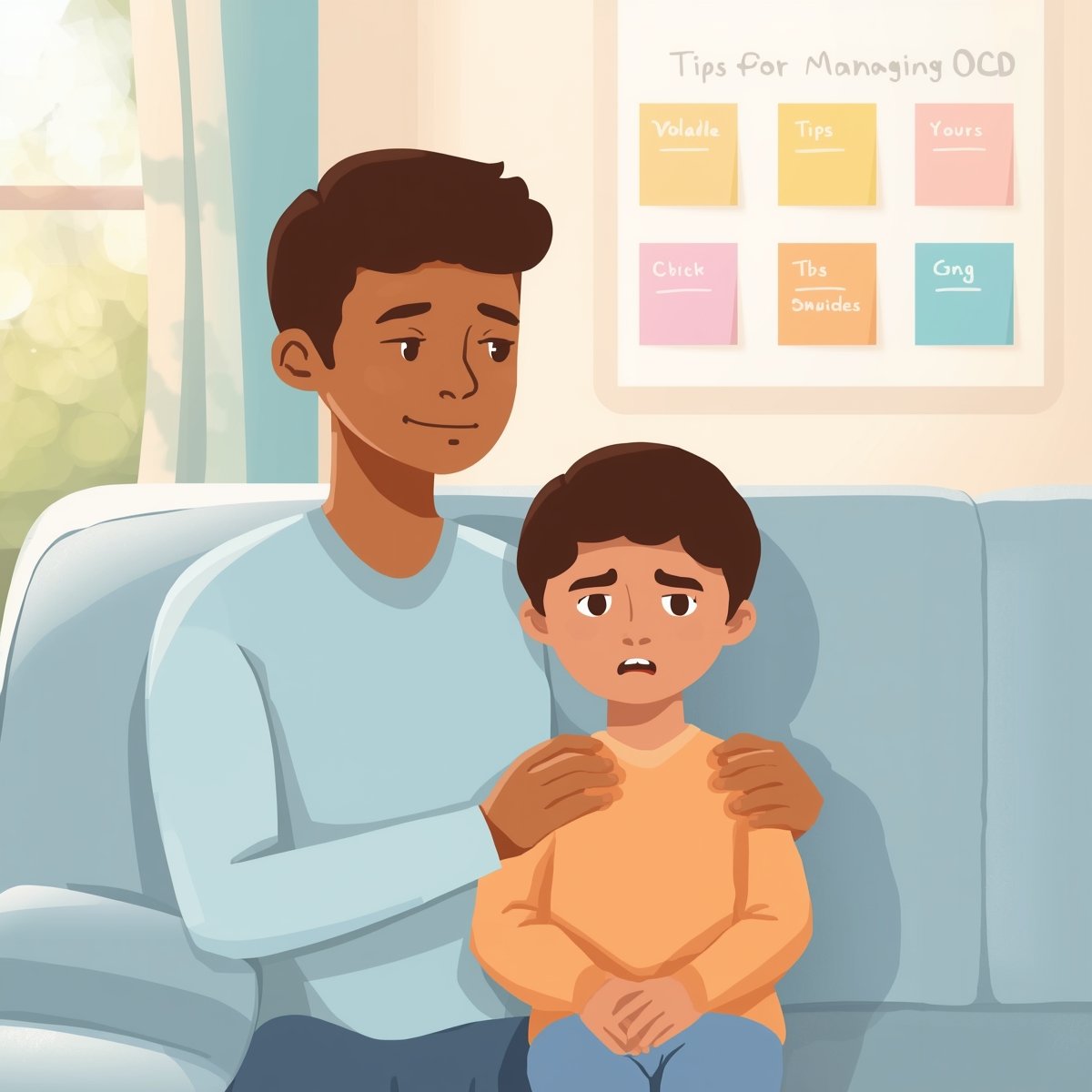5 Tips for Parents Who Have Children with OCD, Childhood OCD is one of the most emotionally draining experiences for parents. When a child repeatedly asks questions, seeks reassurance, washes hands, avoids school, or gets trapped in intrusive thoughts, parents often feel confused, scared, and helpless. The good news is child OCD is recoverable and completely curable with structure recovery program, and with the right support system, children can recover fully and re start a normal life.
5 Tips for Parents Who Have Children with OCD, This comprehensive guide combines psychological principles, parent support strategies, and Emotion of Life’s holistic 360° model of care to help families empower their children effectively. Led by OCD Specialist Therapist Shyam Gupta and Psychologist & Counsellor Pratibha Gupta, Emotion of Life has transformed thousands of children’s lives globally over the last 24 years, using CBT, ERP, thematic counselling, and structured family guidance without medication. This article expands the original tips into a full actionable framework for parents navigating childhood obsessive-compulsive disorder.
Understanding Childhood OCD: Why Parental Guidance Matters
5 Tips for Parents Who Have Children with OCD Childhood Obsessive-Compulsive Disorder brings intrusive thoughts, anxiety spikes, repetitive behaviours, and avoidance patterns. Children often lack the words to communicate their fear, so compulsions become their temporary emotional relief.
Parents play a critical role in:
- breaking reassurance cycles
- teaching rational thinking
- guiding ERP exercises
- creating emotional safety
- modelling confidence
- enabling long-term recovery
With structured steps, 5 Tips for Parents Who Have Children with OCD. children not only improve but learn powerful emotional skills for life.
Tip 1: Identify the Troubling Thought
Every OCD cycle starts with a core intrusive thought.
Examples include:
- “What if my hands are dirty?”
- “What if something bad happens to mom?”
- “What if I hurt someone by mistake?”
- “What if I fail in school?”
Helping your child label the thought reduces fear. This step teaches:
- emotional awareness
- thought–feeling connection
- separation between the child and OCD voice
Emotion of Life encourages parents to sit calmly with the child and help them express the thought without judgment. The moment the thought becomes visible, OCD loses its power.
Tip 2: Map the Compulsive Behaviour
Once the intrusive thought is identified, the next step is mapping the compulsion, such as:
- repeated hand washing
- arranging items
- asking the same question multiple times
- checking, rechecking
- avoidance
Mapping behaviour helps parents understand:
- the pattern
- the trigger
- the frequency
- the emotional need behind it
Emotion of Life teaches parents to create a simple “OCD map” with triggers, behaviours, and emotional reactions. This becomes the blueprint for ERP therapy.
Tip 3: Focus on Life Goals (Not OCD)
Children with OCD often shrink their life:
- avoiding school
- stopping hobbies
- distancing from friends
- overthinking instead of studying
- seeking comfort over courage
As parents, shift their attention to values and goals instead of OCD fear.
Ask them:
- “What do you want to achieve this week?”
- “Which hobby excites you?”
- “What is one small goal we can work on today?”
Life-based motivation brings hope, strength, and identity beyond OCD.
Tip 4: Do Not Provide Reassurance
Reassurance is the biggest trap in child OCD treatment.
When parents say:
- “Nothing will happen, don’t worry.”
- “You are safe.”
- “You washed enough.”
- “It’s fine, nothing is dirty.”
they unintentionally strengthen OCD.
Instead use these responses:
- “What does your OCD want?”
- “What do YOU want to choose—fear or strength?”
- “Can you sit with this thought for a minute?”
This builds tolerance, confidence, and emotional independence.
Tip 5: Explain the Logical Aspect of Intrusive Thoughts
Children often believe intrusive thoughts are real or dangerous.
Parents must teach them:
- intrusive thoughts are random
- thoughts are not facts
- thoughts do not predict the future
- the brain produces noise under anxiety
Use child-friendly metaphors:
- “Your brain is sending funny alarms.”
- “It’s like a silly pop-up on a computer.”
Emotion of Life uses thought rationalisation modules that parents can also learn easily.
Tip 6: Put Things in a Rational Pattern Framework
Teach your child this 3-step framework:
- Thought: What came in your mind?
- Feeling: What emotion did it create?
- Action: What did OCD make you do?
Then ask:
- Rational Response: What is the logical truth?
- Courage Response: What action can you take instead?
This framework is a powerful tool for building emotional intelligence and breaking the OCD loop.
Tip 7: Execute ERP Together (Start Small and Rise Gradually)
ERP is the gold standard for child OCD treatment. Start with small exposures:
- touching a doorknob and delaying washing
- writing a feared word
- facing a harmless situation
- saying “I am not checking again”
Then gradually increase difficulty.
At Emotion of Life, families follow:
- therapist-guided ERP plans
- child-friendly exposure ladders
- daily accountability
- progress tracking
When parents practice ERP with the child, recovery is faster and deeper.
Tip 8: Celebrate Wins – Track Progress Together
Small victories are everything in childhood OCD recovery.
Examples:
- washing hands one time less
- sitting with anxiety for 30 seconds
- resisting a checking ritual
- facing a fear without meltdown
Use a shared parent–child journal to record progress.
Emotion of Life encourages families to write:
- “Today I was brave.”
- “I faced my fear for 2 minutes.”
- “I didn’t ask for reassurance.”
Celebration increases motivation and confidence.
Tip 9: Do a SWOT Analysis of OCD
This is an advanced but powerful method:
- S – Strengths: What strengths does the child have?
- W – Weaknesses: Which OCD areas are challenging?
- O – Opportunities: Where can progress be made?
- T – Threats: What triggers or situations worsen OCD?
Parents can conduct this weekly to understand growth.
Emotion of Life incorporates SWOT analysis in its 360° Holistic Model of Care for children.
Tip 10: Encourage a Healthy Lifestyle
A healthy routine supports emotional stability:
- regular sleep
- outdoor play
- limited screen time
- mindful breathing
- balanced diet
- structured routine
Children with OCD thrive when mind and body feel grounded.
Tip 11: Celebrate Every Small Success
OCD recovery for children is not linear.
Small steps matter.
Celebrate:
- courage
- honesty
- effort
- progress
- consistency
Success builds self-belief and reduces shame.
Tip 12: Reach Out for Professional Guidance
Parents should seek help when:
- compulsions increase
- school performance drops
- child becomes withdrawn
- reassurance cycles worsen
- anxiety affects daily life
Emotion of Life offers:
- online therapy globally
- onsite intensive programs in Agra
- family counselling
- daily CBT & ERP sessions
- child-friendly recovery modules
If deeper support is needed, families can join workshops and one-on-one sessions.
Success Stories of Children Overcoming OCD (Emotion of Life)
Success Story 1: Aarav, 9 — Handwashing OCD
Aarav washed his hands 60+ times a day. ERP, parent coaching, and rational thinking exercises helped him reduce compulsions to near zero within 4 months. Now he plays freely, attends school confidently, and enjoys drawing again.
Success Story 2: Meera, 12 Intrusive Harm Thoughts
Meera feared she would harm her family. Parents were emotional and scared, but Emotion of Life taught them how to stop reassurance and start logical restructuring. ERP and storytelling techniques helped her overcome the fear fully.
Success Story 3: Rishab, 14 School Separation & Checking OCD
Rishab checked his bag repeatedly and cried at school gates. With structured ERP and parent training, he stopped checking, regained confidence, and now attends school with joy.
Success Story 4: Anaya, 15 Perfectionism OCD
Anaya rewrote homework pages 10–20 times. She learned how to accept imperfections through exposure tasks and coping scripts. Today she completes assignments on time and participates in competitions.
Success Story 5: Kabir, 11 — Contamination & Touch Avoidance
Kabir refused to touch objects at home and school. After guided ERP exposures and a confidence-building routine, he now engages fully in outdoor sports and family activities.
Frequently Asked Questions on Children OCD Treatment
1. How do I know if my child truly has OCD?
If your child experiences repetitive thoughts, anxiety spikes, and compulsions that interfere with daily life, they may have OCD. A trained therapist like those at Emotion of Life can provide an accurate assessment.
2. Does ERP work for children with OCD?
Yes. ERP is the globally accepted gold standard for childhood OCD recovery. With proper guidance, even young children respond exceptionally well.
3. Should I stop my child from doing compulsions?
Not forcefully. Instead, use ERP-based gradual exposure strategies to reduce and eventually eliminate compulsions.
4. Can childhood OCD go away naturally?
No, OCD rarely resolves without structured intervention. Early treatment leads to permanent recovery.
5. When should parents seek professional help?
Seek help when OCD begins affecting school, mood, behaviour, or daily functioning. Emotion of Life provides specialized OCD treatment for children through online and onsite programs.
Conclusion: How Parents Can Help Their Child Recover from OCD
Parents are the strongest support system for a child dealing with OCD. With patience, structure, and rational guidance, children can overcome even severe OCD symptoms.
The most effective approach includes:
- identifying intrusive thoughts
- avoiding reassurance
- strengthening rational thinking
- performing ERP consistently
- celebrating small progress
- maintaining a healthy lifestyle
- seeking timely professional support
For families seeking expert help, Emotion of Life, led by Shyam Gupta and Pratibha Gupta, offers a world-class, holistic recovery model that has transformed the lives of thousands of children across the globe. Your child can recover. Your family can heal. And with the right guidance, OCD can become just a chapter—not the whole story.
Contact:
Email: info@emotionoflife.in
Phone/WhatsApp: 9368503416 – Call for Initial Discussion
Emotion of Life — OCD Treatment, Research & Training Institute.
Lead Specialists: Shyam Gupta & Pratibha Gupta.
We treat 70+ OCD subtypes and specialize in complex, chronic, and treatment-resistant cases.
Non-medication recovery using CBT, ERP, and holistic wellness integration.
Book Now | Review | OCD Types | Our Experts | Success Stories| Contact Us| MyPsychologist









